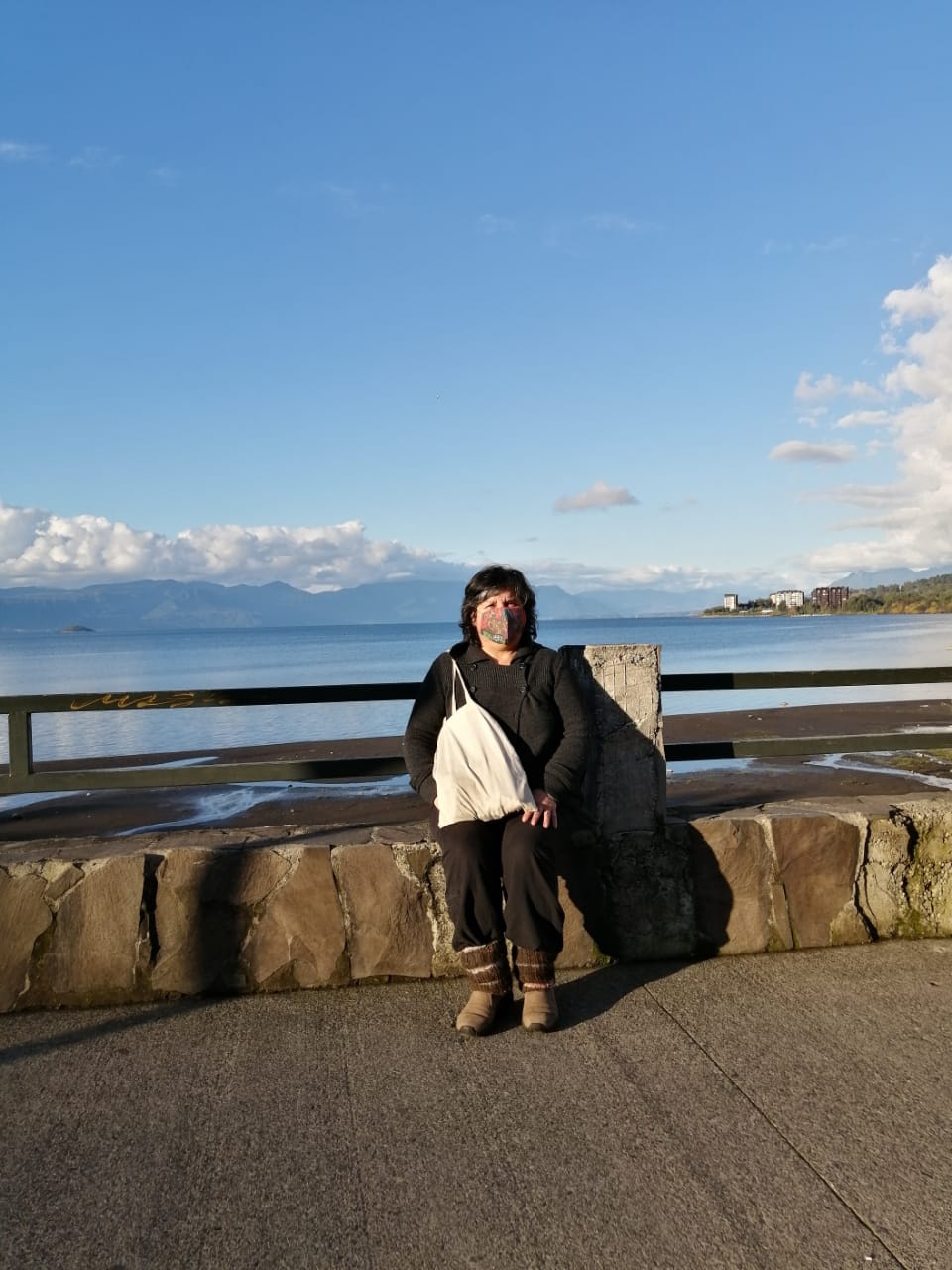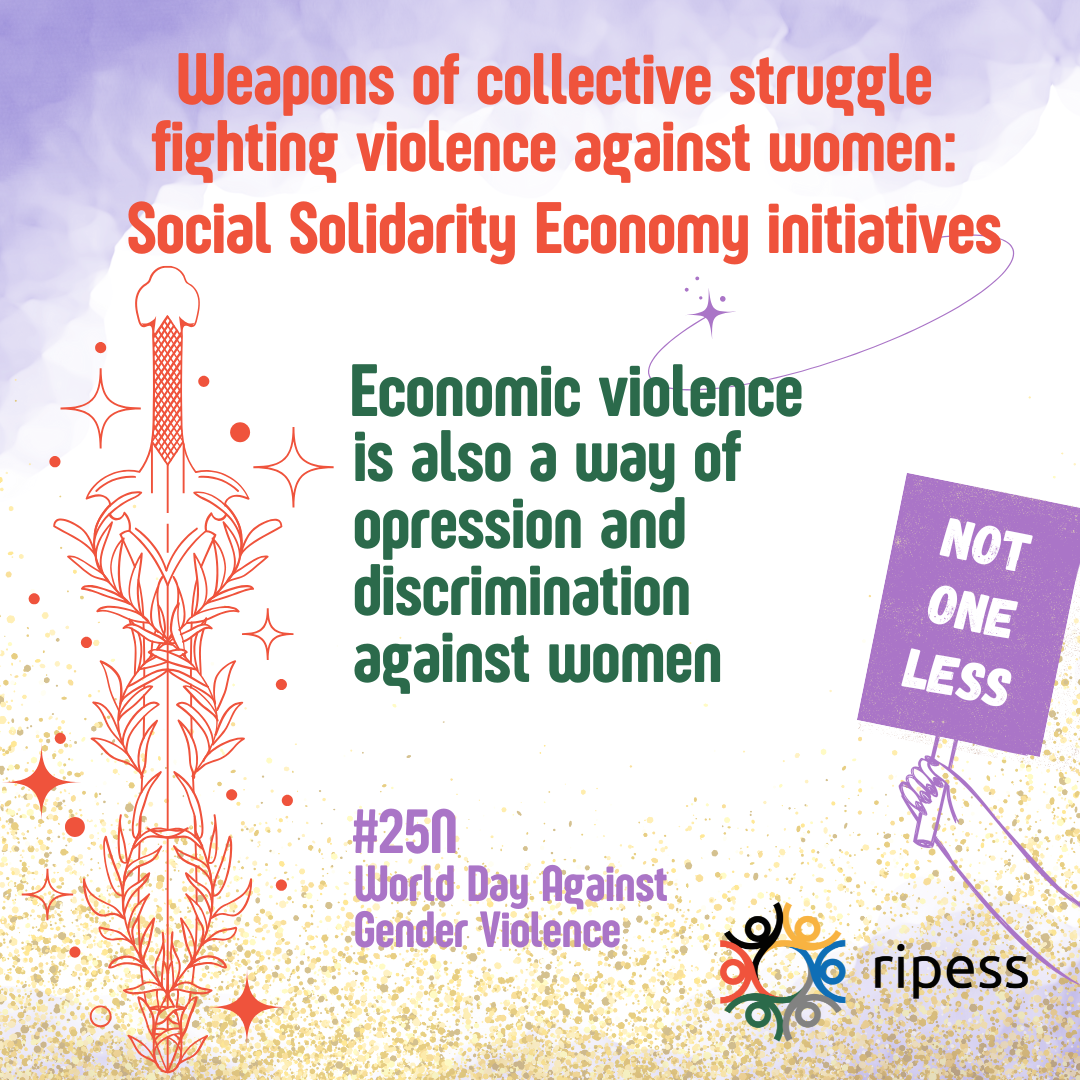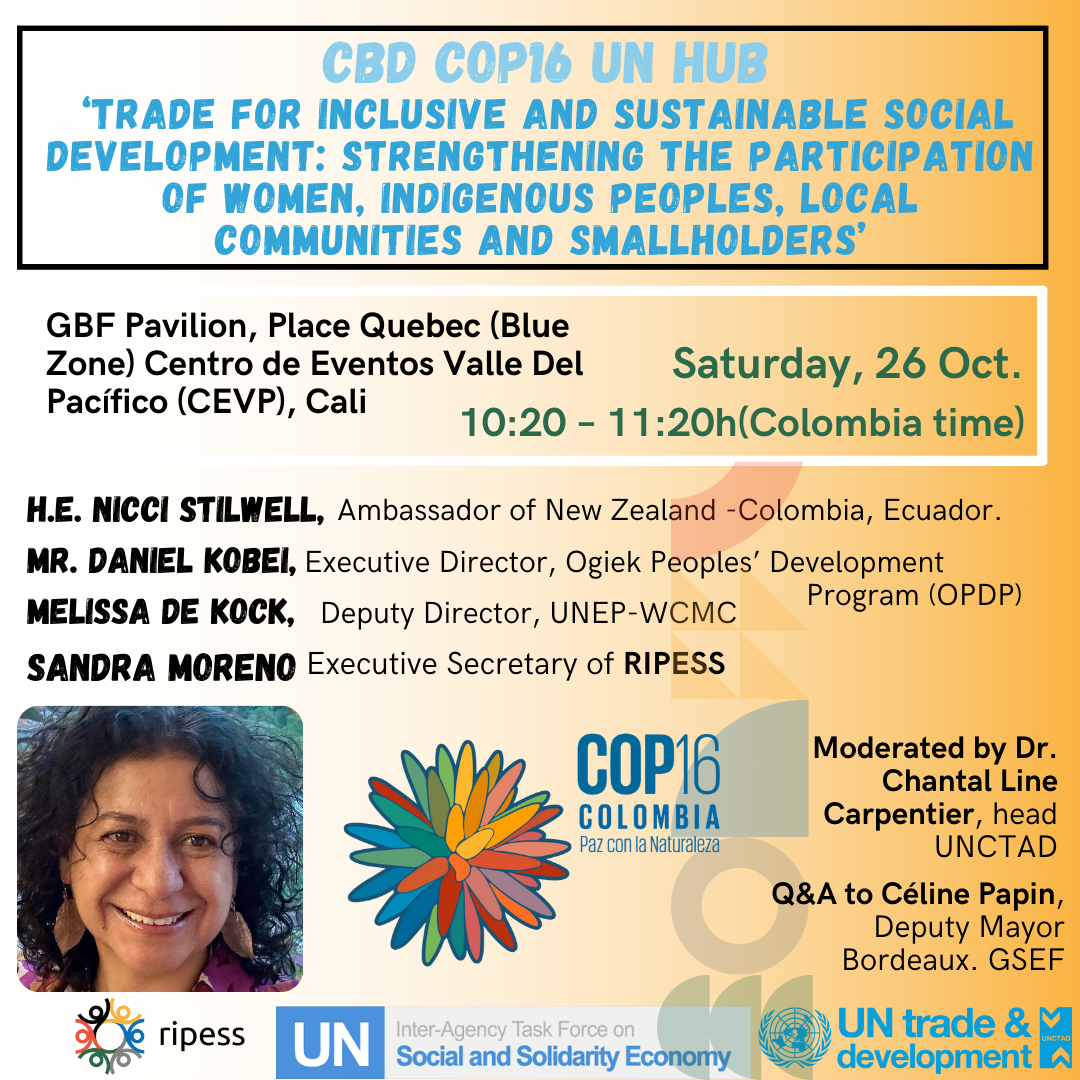Irene Jara Cadogan is a Chilean activist from the southern region of the country. Irene has been accompanying training processes for 20 years, especially in local and organizational development in a network of territorial organizations that is looking for alternative ways of doing and living the economy in developing countries. For two decades, the Network has been building bonds of trust in the territories and putting other ways of relating and living the economy into practice, based mainly on the wisdom of the ancestral Mapuche people. Irene is also a member of the Gender Commission of RIPESS LAC.
Why did you get involved with SSE?
I got involved many years ago because of my work with grassroots and peasant organizations who organized an associative life in their work and access to other benefits. Then, living in the Araucanía area, which is the historical territory of the Mapuche people, I worked for years in organizations that deal with the defense of the rights of native peoples. In this space, a reflection became more evident: these demands for political recognition of the native people still did not include an economic proposal. The focus was placed on aspects of political life to move forward with changes, but economic proposals that would accompany the process were not yet addressed. I saw this because of my family and work relationship with professionals in the economic area. I understood that everything is connected and that “the economic” in some societies is a driving force in the life of people, therefore it is necessary to be present there, to reflect and develop proposals for change based on other values and forms of relationship.
And what is your vision of SSE?
The SSE has proposals based on values. Values that I share, centered on the emancipation of individuals and peoples, on the search for their dignity, on social justice, and now at the center of respect and care for life. There is a strong orientation that directs the actions of those of us who are involved in SSE, and this vision makes sense. On the contrary, the economy increasingly prevailing in my country and in the rest of Latin America was and is that of capitalism, the market, exploitation of resources, etc.. an economy that enslaves people and peoples for the benefit of a minority elite. I believe that Solidarity Economy is not only an economic area or proposal but a way of life where everything is united.
What do you think about the place of women in SSE?
In my history as part of the Solidarity Economy movement in Al, I was always struck by the fact that the work of some men, thinkers, professionals or not, who are part of the movement, was recognized with emphasis, and I was surprised by the lack of names of women in this field. It is necessary for me to recognize that we have great “masters of Solidarity Economy” among us. This is something that has disturbed me because in practice in the territories it is women who move and develop life, who take care of the territory. Women are the face of other economies and I would have an endless list of names to give and share. This motivated me to join the Gender Commission that RIPESS Latin America began to develop.
This experience of forming a new commission with other colleagues that would look at the economy from the eyes and experiences of women has been, and remains a permanent challenge. It is also a learning experience to dialogue in diversity and unity of approaches, to listen to each interesting and important approach that speaks of other local and personal stories lived in each country and territory, as women enrich us every time and require us to live tolerance, permanent listening, dialogue and respect on concrete issues. This is not an easy or simple task.
Where do you develop your work?
First of all, SSE is a collective effort for us, it is associative. I do not develop it alone, but as part of a larger group. These are networks, organizations, fabrics of friendship and a collective journey we are on. And it is developed in a concrete Territory, with its life, its history, its reality. Today Solidarity Economy in the Territory is part of me and I am part of it, because it teaches me and speaks to us if we know how to listen. In our case it is a Mapuche territory with all its history and cosmovision, with the difficulties and great challenges, and now living through military interventions. In this reality we build support networks of trust, which is the first thing to look for: concrete proposals that involve the economic as a part of something bigger. This vision is possible through SSE. Our Network of Territorial Economies of the Wallmapu is about 20 years old, and is made up of various organizations from the southern territories. Meetings that last several days are held every few months, where news from the territories is shared, markets that support our identity take place, and we reflect on where and how to walk in the defense of territory, water, food and life. In this space of the Network, programs are developed that strengthen the general vision such as the Mapuche Vegetable Gardens or the Traditional and Ancestral Cuisine among others that allow learning and sharing and innovating in the work of the organizations and families. The decision was to move from resistance in the territories to the proposal with concrete actions that bring meaning and values into practice.
Could you explain how the pandemic impacted the territory?
The impact of the pandemic has been very strong due to the limitations imposed, especially the lack of meeting and gathering spaces. Many of the members who are part of the Network do not have the technology to be connected. This has affected the life and work we develop. Together with this, and given the context of being under a “state of emergency decree” in the country, has allowed the Mapuche territory to be more militarized, which creates a very delicate environment today.
In this context, the capacity of adaptation of all those who have created other ways to maintain the links and some activities that give life to the organizations has emerged.
The women in our networks are above all defenders of the territories and of life, so the work of being attentive to this new reality continues.
What are the benefits of belonging to global networks?
I would say that it is above all to get to know, exchange, learn. To make what is being done visible. To recognize sisters and brothers who have the same feeling in other parts of the world. Generally we are more absorbed by everyday and territorial activities, so it is an effort to open ourselves to other places and experiences.









Leave A Comment